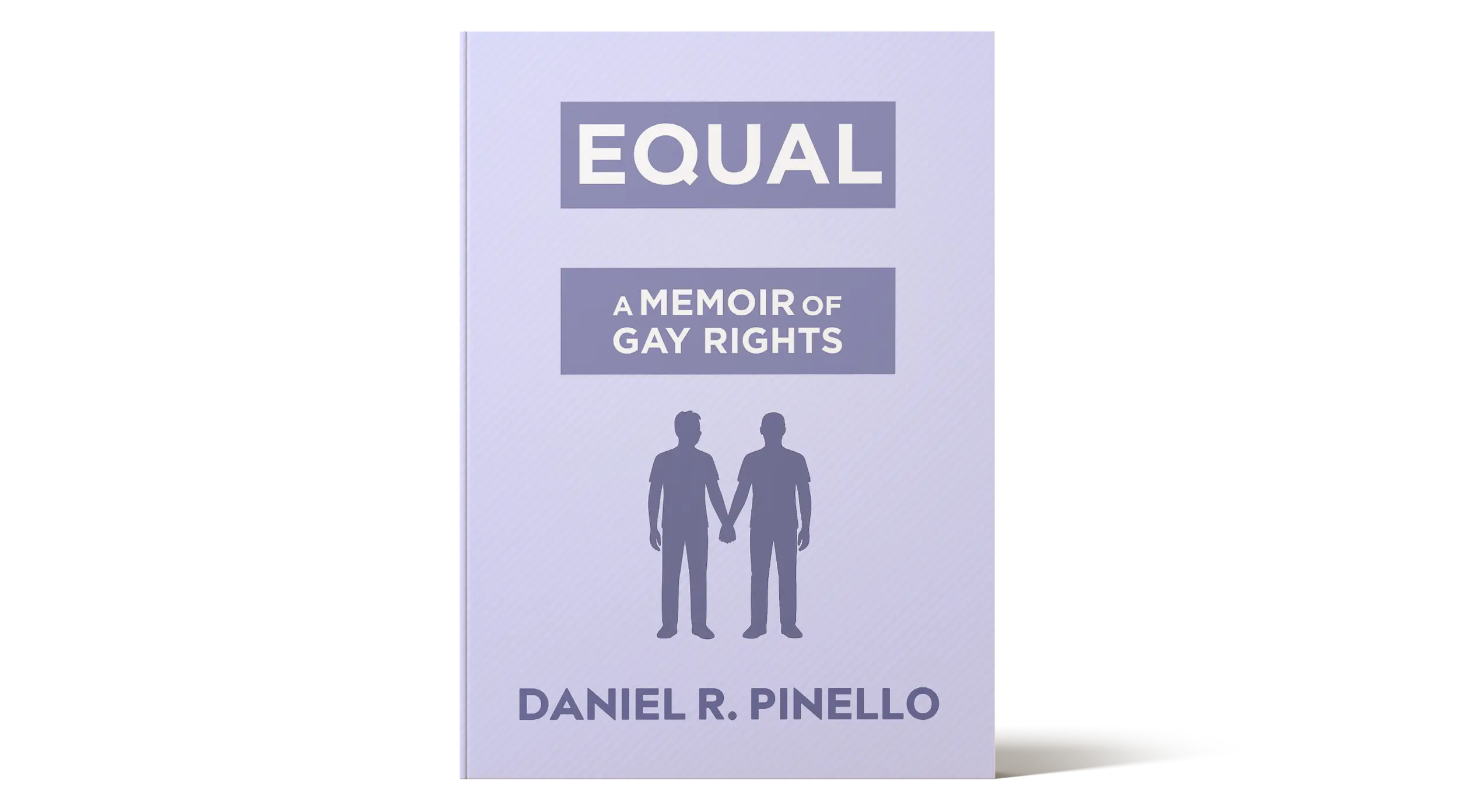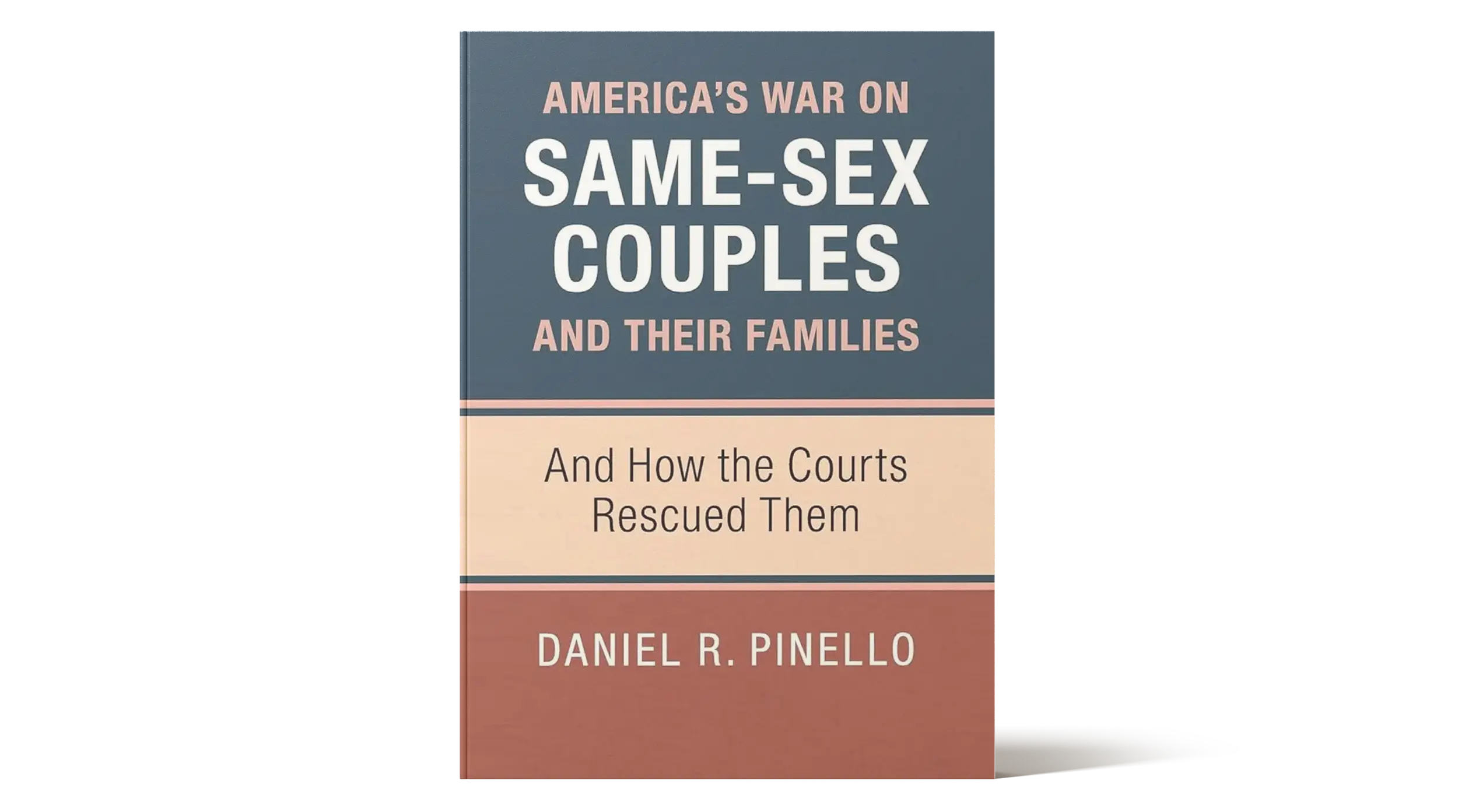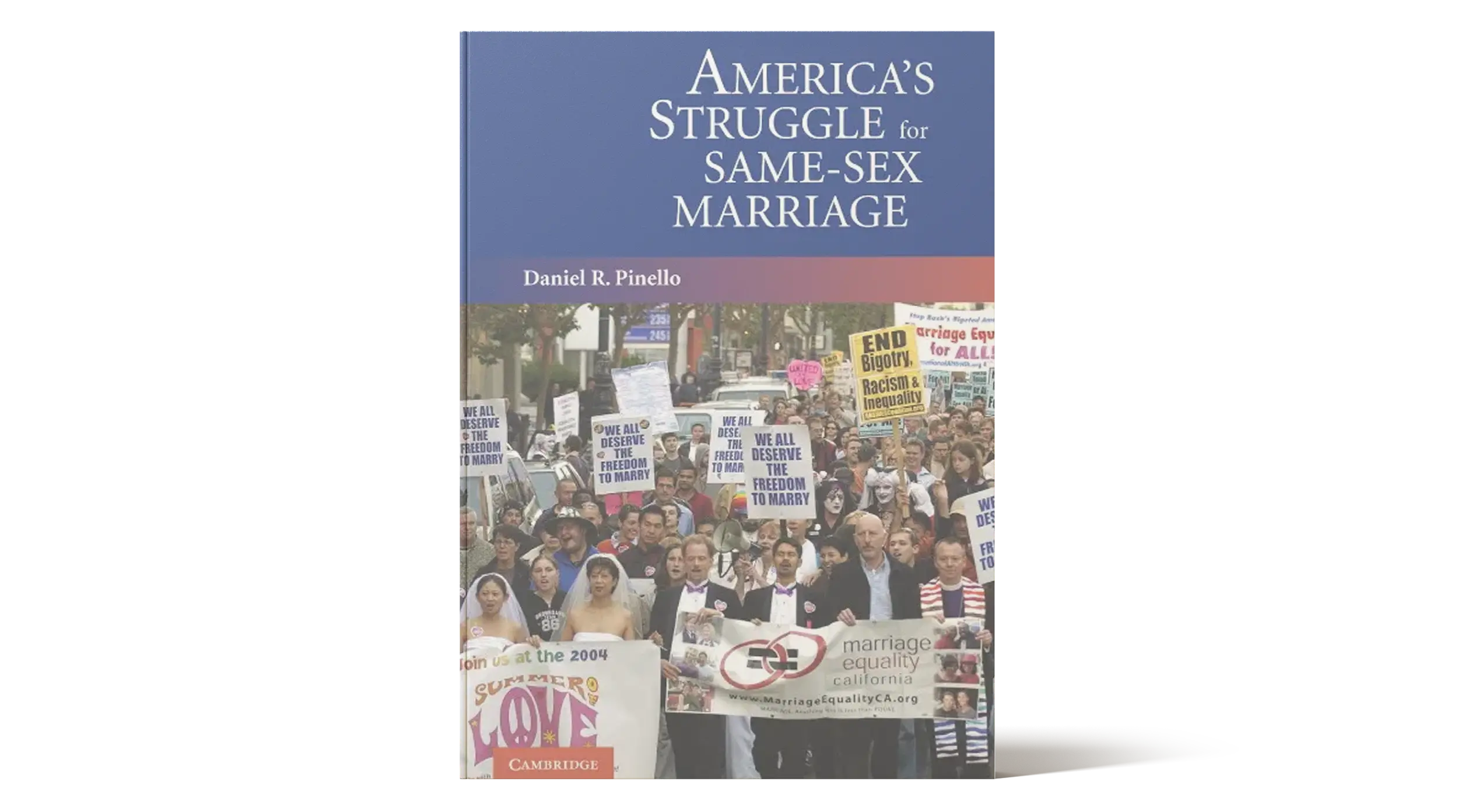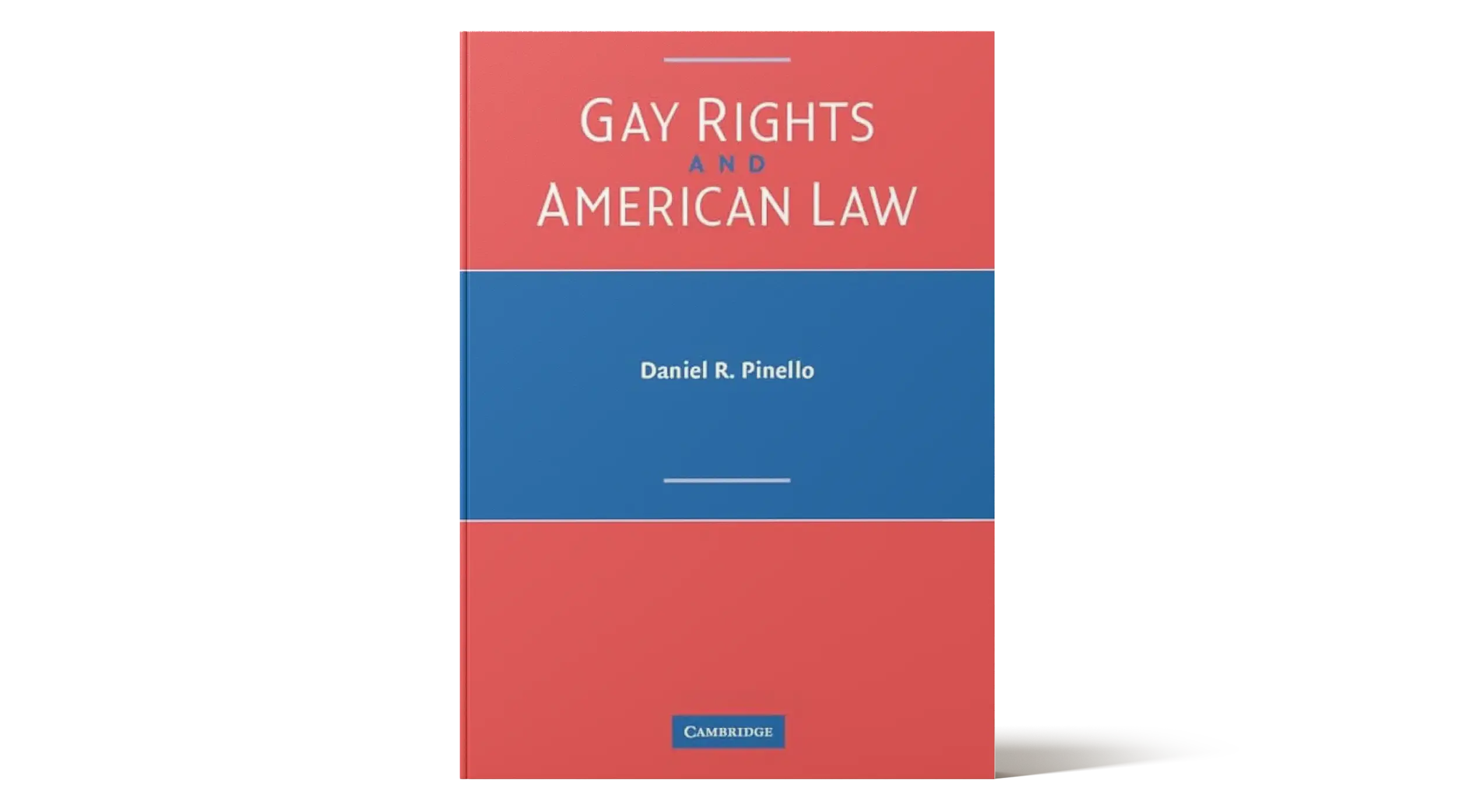Raum v. Restaurant Associates, Inc.
New York Supreme Court, Appellate Division, First Department
252 A.D.2d 369, 675 N.Y.S.2d 343
July 9, 1998
MEMORANDUM DECISION.
Order, Supreme Court, New York County (Shelia Abdus-Salaam, J.), entered August 5, 1996, which granted defendants’ motions for partial summary judgment dismissing plaintiff executor’s individual wrongful- death claims against them, affirmed, without costs.
The IAS court correctly held that the New Yorkwrongful-death statute, which, by its terms, does not give individuals not married to the decedent (other than certain blood relatives) a right to bring a wrongful-death action, operates without regard to sexual orientation, in that unmarried couples living together, whether heterosexual or homosexual, similarly lack the right to bring a wrongful-death action, and, as such, the statute does not discriminate against same-sex partners in spousal-type relationships. Nor is there merit to plaintiff’s argument that the word “spouse” in the New York statute should be read to include such same-sex partners (see, Greenwald v. H & P 29th St. Assocs., 241 A.D.2d 307, 659 N.Y.S.2d 473 [construing the spousal privilege in the civil procedure law and distinguishing Braschi v. Stahl Assocs. Co. (74 N.Y.2d 201) and Matter of Jacob (86 N.Y.2d 651)]; Matter of Cooper, 187 A.D.2d 128, 592 N.Y.S.2d 797 [construing a surviving spouse’s right of election against a deceased spouse’s will]). The dissent unduly strains the statutory language defining a husband or wife to be a surviving spouse to conclude that the statute does not preclude from the classification persons who are other than a husband or wife. Although the dissent would apply a “functional” rather than a “literal” interpretation, that endeavor is contrary to standard canons of statutory construction. Whatever expansion may be given various family-related terms in other statutes and codes, the statutory definition in this regard is clear and preclusive. Since it is not within the judicial province to redefine terms given clear meaning in a statute (Matter of Cooper, supra), plaintiff’s sole recourse lies in legislative action.
For similar reasons, Braschi v. Stahl Associates (74 N.Y.2d 201), upon which the dissent relies, does not change the analysis. Braschi was a decision propelled by policy considerations not pertinent to the present case. In Braschi, involving a non-marital surviving life partner of the deceased rent-controlled tenant, the Court was required to interpret the term “family”, within the meaning of the rent-control statute. Preliminarily, an expansive definition for those purposes has no direct bearing on an entirely different statute. Moreover, even for purposes of analogizing similar terms in different statutes, the comparison must fail: “family” is an inherently more expansive classification than “spouse” under New York law, and it is as a spousal-equivalent that plaintiff herein claims standing. Further, the Braschi court drew a sharp distinction between rent-control laws, which serve to stabilize living arrangements, and the statute that exists to ensure the orderly succession of property rights among clearly defined classes of persons. Finally, the dispositive point is that the Braschi Court found “family” to be undefined in the rent-control statute, thus invoking the judicial role of resolving ambiguities in legislative terms, whereas in wrongful death statute, the Legislature defined the term “spouse.” This circumstance should foreclose any further judicial intervention.
ROSENBERGER, Justice Presiding (dissenting).
I dissent, and would reverse and remand, on the ground that under the Equal Protection Clause of the State and Federal Constitutions, plaintiff cannot be denied standing to sue for wrongful-death damages pursuant to the relevant New York statute. The motion court erred in granting defendants’ motion for partial summary judgment dismissing plaintiff’s wrongful-death claim.
Under the statute, a decedent’s “distributees” are entitled to sue a tortfeasor for wrongful-death damages. The statute defines a distributee as a person who would be entitled to a share of the decedent’s property if he died intestate. The eligible distributees are the surviving “spouse” and various enumerated types of blood relatives (e.g., parents, issue, brothers and sisters).
Nowhere in the statute is a surviving “spouse” limited to a “husband or wife.” The statute merely states, “A husband or wife is a surviving spouse” unless the parties divorced or separated, or the marriage was void, or the survivor abandoned or refused to support the decedent. Rather than limiting the class of people who could be considered a surviving “spouse,” the statute provides that a husband or wife will be presumed to be a member of this class unless certain things have occurred. Thus, the statutory language does not foreclose plaintiff’s argument that he should be considered a surviving spouse for purposes of bringing a wrongful-death action.
Moreover, precedent exists for preferring a functional over a literal interpretation of a statute whose purpose is to promote the public welfare, so that homosexual couples will not be disadvantaged by their inability to give their relationship a legal status. In Braschi v. Stahl Associates (74 N.Y.2d 201, 206), the Court of Appeals held that the deceased tenant’s life partner could be considered a “family member” with succession rights to the tenant’s rent-controlled apartment. The court believed that the applicable statute should be read broadly, because its purpose is to promote the public good and prevent landlords from unjustly exploiting tenants.
The intended protection against sudden eviction should not rest on fictitious legal distinctions or genetic history, but instead should find its foundation in the reality of family life. In the context of eviction, a more realistic, and certainly equally valid, view of a family includes two adult lifetime partners whose relationship is long term and characterized by an emotional and financial commitment and interdependence.
Accordingly, the court held that a surviving life partner should be given the chance to prove that his household arrangements with the decedent were familial. Factors to be considered would include the duration of the relationship, whether their friends and relatives regarded them as a couple, their shared financial responsibilities for the household and assumption of legal rights and responsibilities such as power of attorney or executor of estate. All these indicia of familial relations are present in the instant case.
However, in Matter of Cooper (187 A.D.2d 128, 592 N.Y.S.2d 797), the Second Department rejected a homosexual partner’s claim to be considered a surviving “spouse” for purposes of intestate succession. This case is distinguishable. Cooper seems to rest mainly on the inadequacy of plaintiff’s equal protection challenge to the state’s non-recognition of same-sex marriage. Plaintiff here argues that since he is barred from marrying, his marital status, over which he had no control, should not be a barrier to tort damages.
Finally, an entity may have a different legal status in different contexts for public-policy reasons. For instance, a fetus is considered a person when its injuries give rise to a criminal assault prosecution (People v. Hayat, 235 A.D.2d 287, 653 N.Y.S.2d 305), but not in the context of abortion (Roe v. Wade, 410 U.S. 113). Similarly, a homosexual partner could be a surviving “spouse” under the wrongful-death statute when he seeks to recover against a tortfeasor, but not when he seeks to recover against the estate (and possibly frustrate the decedent’s intentions as expressed in the invalidated will). It makes sense to construe the intestacy statute’s definition of “surviving spouse” narrowly when the opposing parties are innocent heirs, and broadly when they are tortfeasors.
This argument may appear to conflict with Secord v. Fischetti (236 A.D.2d 206, 653 N.Y.S.2d 551), in which we held, without discussion, that it was not unreasonable for the Crime Victims Board to decide that homosexual life partners were not surviving “spouses” to be compensated under the Executive Law. Secord could nonetheless be distinguished as presenting a different situation: unlike the wrongful-death statute, this one contained an additional provision which allowed “any other person dependent for his principal support upon a victim of a crime” to recover damages as well. Therefore, as a policy matter, there was no need to extend surviving “spouse” beyond its traditional meaning. By contrast, the wrongful-death statute makes no alternative provision for homosexual dependents, which puts them at a disadvantage and raises equal protection problems unless surviving “spouse” is interpreted more broadly.
Plaintiff argues that it would be unconstitutional to interpret the relevant statutes so as to deny homosexual life partners the right to sue. Under the Equal Protection Clause of the U.S. Constitution, 14th Amendment, and the analogous provision in the New York Constitution, article I, Section 11, such an interpretation would amount to an invidious distinction between homosexuals and heterosexuals, which could not survive rational-basis review. This argument has merit.
This court has interpreted both the Federal and the State Constitution’s equal protection clauses to forbid discrimination “on the basis of sexual orientation or affectional preference” (Under 21 v. City of NY, 108 A.D.2d 250, 254, 488 N.Y.S.2d 669). The “constitutional predicate upon which we rest [ed]” in Under 21 was that homosexuals were a “‘significant and insular minority'” which had historically been subjected to “‘immediate and severe opprobrium'”, and that, therefore, state action, which discriminated on the basis of homosexuality, should be “‘subjected to strict, or at least heightened, scrutiny'” (quoting Rowland v. Mad Riv. Local School Dist., 470 U.S. 1009, 1014 [Marshall and Brennan, JJ, dissenting]).
The motion court granted summary judgment dismissing plaintiff’s equal protection claim because the statute equally denied wrongful-death benefits to unmarried homosexual couples and unmarried heterosexual couples, an argument which the majority adopts and upon which it partly relies. However, this was not the appropriate comparison. Homosexual life partners, who legally cannot marry, are not similarly situated to unmarried heterosexual couples who have the option to marry and obtain the protection of the statute, yet choose not to. If the Legislature does not allow homosexual couples to marry, or even to enter into an equivalent legally binding commitment, it cannot make marriage a condition precedent to a statutory right that is available to heterosexuals, especially where sexual preference is irrelevant to the purposes of the statute (see, Levy v. Louisiana, 391 U.S. 68, 71-72 [allowing legitimate children, but not those born out of wedlock, to sue for damages for wrongful death of parent was invidious discrimination without rational basis, because legitimacy was unrelated to the harm inflicted]).
The Court of Appeals disapproved of an analogous paradoxical situation in the adoption context. In Matter of Alison D. v. Virginia M. (77 N.Y.2d 651), the biological mother’s former lesbian lover was denied standing to seek visitation rights with respect to the child whom they had raised together. The court held that the Domestic Relations Law did not give an unrelated third party the power to interfere with the custodial parent’s choice of persons with whom her child could associate. Subsequently, in Matter of Dana (86 N.Y.2d 651), the court interpreted the adoption laws to allow the biological parent’s live-in homosexual life partner to adopt the child, rejecting a literal reading of the statute that would have forced the biological parent to relinquish parental rights unless the adoptive parent was her husband.
The court believed it would be unfair to deny visitation rights to a homosexual partner because she had no legal bond to the child, while simultaneously preventing her from establishing such a bond. In fact, such a paradox might even be unconstitutional, since heterosexual spouses faced no such dilemma. Similarly, it is both unfair and unconstitutional to deny plaintiff the right to sue the person responsible for the death of his life partner because he was not married to the decedent, when the law prevented them from marrying.
Exclusion of homosexual life partners from the class of persons who have standing under the wrongful-death statute lacks a rational basis because it is neither rationally related to the interests served by the statute, nor to the state’s policy against same-sex marriage, nor even to administrative convenience.
The goals of the wrongful-death statute are to compensate the victim’s dependents, to punish and deter tortfeasors and to reduce welfare dependency by providing for the families of those who have lost their means of support. The legal status of the dependents’ relationship to the decedent does not affect their need for compensation and support, nor diminish society’s interest in preventing tortious behavior. There is thus no rational basis for excluding a class of injured dependents from recovery, nor for granting a windfall to those who negligently cause death, simply because the dependents did not have a legally-recognized relationship with the decedent.
The fact that New York does not recognize same-sex marriage should be irrelevant for purposes of the wrongful-death statute. If the state’s asserted interest in encouraging marriage must give way to equal protection considerations in the adoption context (Matter of Dana, supra), which directly implicates the child-rearing concerns that motivate the state’s policy on marriage, then the state’s interest is even weaker and more tangential when only tort damages are at stake.
The Supreme Court articulated this principle in the wrongful-death context in Levy v. Louisiana, supra. Under a rational basis standard, “it is invidious to discriminate against [out-of-wedlock children] when no action, conduct, or demeanor of theirs is possibly relevant to the harm that was done the mother.”
The final objective that could be served by a literal legal definition of surviving “spouse” is administrative convenience. The state assuredly has an interest in establishing guidelines that make the identity of potential plaintiffs clear and easily ascertainable. It is easier to determine that someone is the legal widow or widower of the decedent than to inquire into the facts of the decedent’s unofficial relationship with a homosexual life partner. Nonetheless, courts have not found such fact-based inquiries to be particularly problematic in the past.
While New York has not recognized common-law marriages created in New York since 1933, it will recognize such marriages if they were valid under the laws of the states where contracted (Mott v. Duncan Petroleum Trans., 51 N.Y.2d 289, 292). Accordingly, if a common-law spouse claims workers’ compensation death benefits (Mott, supra), an elective share of the estate (Matter of Abbott, 189 A.D.2d 709, 592 N.Y.S.2d 729), or other rights and privileges of a legal spouse in New York, the court will investigate the facts of the relationship–such as the parties’ financial and living arrangements, and whether they held themselves out to their acquaintances as a couple–to determine whether the common-law marriage is entitled to full faith and credit in New York. There is no rational basis for concluding that such an inquiry into a party’s status and relationship with the decedent is unduly burdensome when the couple is homosexual, but not when the couple is heterosexual.
In applying Braschi to homosexual survivors of deceased tenants, this court similarly managed to examine the objective facts of the relationship in question, without undue inconvenience and without opening the door to a vast increase in litigation (e.g., East 10th Street Associates v. Estate of Goldstein, 154 A.D.2d 142, 552 N.Y.S.2d 257; 390 West End Associates v. Wildfoerster, 241 A.D.2d 402, 661 N.Y.S.2d 202). Thus, the asserted inconvenience does not compel a different result in the instant case, especially when, as in Braschi, the dependent plaintiff has asserted an important countervailing interest.
Therefore, I would reverse the decision below and reinstate the plaintiff’s wrongful-death claim under New York’s wrongful-death statute.



